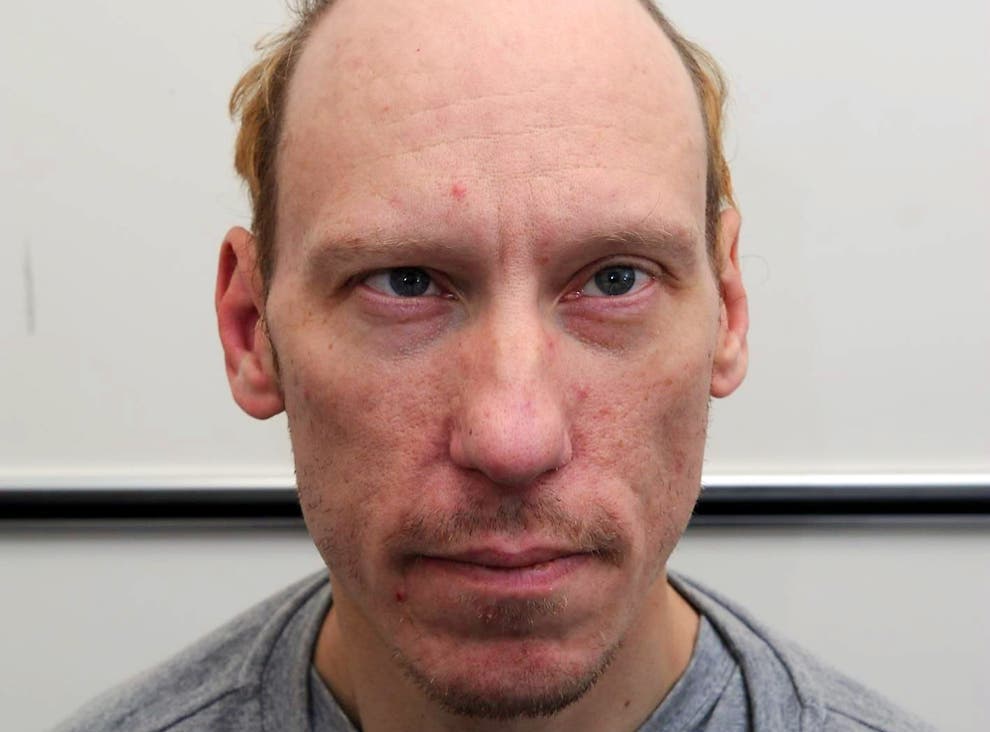Grindr killer’s final victim could have been saved if police had ‘listened’, family tell inquest
‘We think because the police treated Jack as a drug addict the police didn’t look any further’

Grindr murderer Stephen Port’s final victim could have been “saved” had police listened more carefully to people who spoke to them in the wake of the rapist’s first killing, his family members have told an inquest.
Jack Taylor, 25, from Dagenham in Essex, was given a fatal dose of the date rape drug GHB by Port and dumped near the sex predator’s flat in Barking, east London, in September 2015.
His death was initially treated as “non-suspicious”, despite three other young gay men being found dead in similar circumstances over the preceding 16 months.
Port, 46, also killed fashion student Anthony Walgate, 23, Gabriel Kovari, 22 and Daniel Whitworth, 21, with the crimes taking place between June 2014 and September 2015.
He met his victims through dating apps such as Grindr and lured them to his flat before poisoning them with lethal doses of GBH, a date rape drug.
Port, described by a judge as “wicked and monstrous”, was sentenced to life in prison for murder at the Old Bailey in November 2016.
Inquests into the deaths of all four of Port’s victims began in early October. Speaking at Barking Town Hall on Wednesday the father of Mr Taylor - an aspiring police officer - said he thought detectives dismissed his son’s case because they assumed he was a drug addict.
“We think because the police treated Jack as a drug addict the police didn’t look any further,” Colin Taylor said.
“We have got nothing against the police on the whole but listening to everything that’s come out – all four of those boys and the boys that got raped – if they had done something from the start … Port could have been stopped.”
He added: “If the police had listened to all those people from the first murder … this would not have happened. They should have listened, just listened to people.”
Jack’s sister Donna Taylor, who conducted her own investigation, added: “My love and everything goes out to the other families and I’m so sorry they are in the situation they are in, but me and my family should not be sitting here now. My brother should still be here, at home with my mum and dad.”
The inquest at Barking Town Hall heard how Jack was a popular young man who was against drugs.
He worked as a forklift truck driver in a bonded warehouse storing expensive champagne bottles, where staff were regularly checked for drugs.
On the day he went missing, Colin Taylor became worried when his son failed to turn up for work and he could not contact him by phone.
Describing the moment three police officers arrived with news of his death, Colin said: “The youngest one went to us: ‘Are you Jack’s mum and dad?’ We said yes.
“She just came out of the blue: ‘He’s dead.’
“My wife had this awful scream. They said about drugs and we said he didn’t take drugs.
“They should have sat us both down and said: ‘We’ve got some bad news.’ Not straight in your face like that. It was horrible.”
Around two weeks later, other officers informed the family the death was “not suspicious” and believed to have been “an overdose”, jurors heard.
Mr Taylor was shocked when he later saw final CCTV footage of his son walking with another man that later turned out to be Port.
He said: “When we saw pictures of this man, we knew something had happened.”
He added that it was “like losing Jack twice” when police asked to exhume his body five weeks after his burial.
Donna Taylor was on the phone when she heard her mother scream at being told he was dead.
She said: “I went straight round to mum and dad’s. It was awful because we arrived and mum was walking around with Jack’s shirt, just sobbing.”
Ms Taylor told jurors the family was “distraught”, and they insisted that Jack never took drugs.
The witness and her sister Jenny set out to find out what happened to their brother.
She said: “We were adamant that for Jack to go to Barking … there must be a party, a get-together in a house, because he would not just go there.
“We wanted to speak to every one of his friends. We went through his Facebook because we knew pretty much everyone Jack knew. We were looking to see if there is this one person we did not know from Barking.”
The sisters also searched the internet 20 or 30 times a day for news about their brother’s body being found in Barking.
Ms Taylor said: “There was nothing and we could not understand that. You have only got to get a shoplifter and it’s in the [Barking and Dagenham] Post.
“We could not understand. He was important. He was somebody so he has got to be in there at some point.”
They came across an online article about two other men – Gabriel Kovari and Daniel Whitworth – being found dead in the church grounds in Barking.
But Ms Taylor said she was told Mr Whitworth “committed suicide and the other was homeless”.
In a statement, Ms Taylor said she gave police all the information they needed to link the deaths but was met with a “closed-minded attitude”.
It was “painful” to realise her brother “could have been saved”, according to her statement.
Asked if she still felt the same, she told jurors: “You are damn right, that’s how I feel.”
The inquest continues.
Additional reporting by PA
